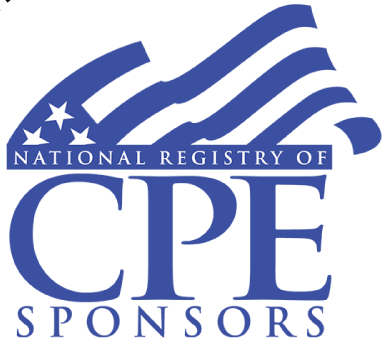Stay connected
Be the first to know about new programs, upcoming events, or other exciting opportunities happening at the University of Georgia by joining our mailing list.
About this course
What you’ll learn
This course will familiarize you with an overview of the budget process. You will also learn the different types of budgets, the components of a budget, and how to prepare a budget summary.
In six lessons, you will learn:
- Types of budgets and their components
- Budget system elements
- How to prepare revenue estimates and budget summaries
- Financial forecasting/estimating revenues
- The process of creating, implementing and monitoring a budget
- How to establish budgetary controls and budgets for contingencies
- Local government action on the budget
- Operating with the Budget
- And more!
Learning objectives
Lesson 1 — Budget Overview
- Recall the definition of a budget and key terms related to the budget process.
- Recognize laws that govern the budget process.
- Identify the correlation between the government’s mission and the budget process.
- Summarize an overview of the budget teams including roles and responsibilities.
- Identify the common characteristics of a good budget.
Lesson 2 —Budget Elements
- Recite the definition of a balanced budget.
- Explain the legal level control.
- Recall different types of budgets.
- Recite the funds used in the budgeting process.
- Recognize the organizational structure of a budget and
- Discuss supplemental budget information including nonfinancial content.
Lesson 3 — Budget Policy
- Discuss the importance of a budget policy
- Identify elements of a well-designed budget policy
- Identify steps involved with creating, training and updating a budget policy.
- Analyze the level of fund balance
Lesson 4 — Budget Preparation Process
- Recall the elements of a successful budget process
- Explain the purpose of a budget calendar
- Create an effective budget calendar
- Identify political considerations during the budget process
- Identify sources for establishing priorities
- Examine the millage rate process as a component of estimating revenues
- Identify components needed for effective forms, position control and software utilization
- Identify trends for effective citizen engagement and legal public notices
- Recall the property tax cycle
- Name the key players in the property tax process.
- Identify the steps in calculating the millage rate and apply it to a digest to determine revenue projections
Lesson 5 — Monitoring the Operating Budget
- Recall the importance of monitoring the budget
- Identify methods for establishing spending controls
- Establish reporting processes to monitor the budget
- Explain the use of contingencies to maintain budgetary compliance
- Determine the appropriate use of budget transfers and amendments
- Identify surpluses and deficits and their impact on fund balances
- Identify common features of budgeting software to assist in the monitoring of the budget.
- Recite the importance of components of structure and project coding for presentation of larger budget projects and key expenditures
Lesson 6 — Budgetary Internal Control
- Identify components of internal controls as established by the Government Accountability Office
- Identify the 17 principles supporting the five components.
- Identify specific internal controls supporting the budget cycle.
Who should attend?
- Local governmental employees who require knowledge of the local government budget process.
- Local government employees who seek to meet requirements of their state’s Local Government Finance Officer Certification Program.
- Professionals with private sector experience who want to gain knowledge of the governmental budgeting process.
- Accounting professionals preparing for the CPA exam or seeking continuing professional education.
Continuing Education Information
The University of Georgia will award 1.1 Continuing Education Units (CEUs) or 11.5 CPEs upon successful completion of this course. A University of Georgia CEU (Opens in a new window) transcript is available at any time upon written request.
NASBA Information
Field of Study: Finance
Delivery Method: QAS Self Study
Advance Preparation: None
Program Level: Basic
Prerequisites: None
Requirements & policies
Schedule
Start anytime and complete the course’s required online quizzes and exercises within 30 days of receiving the “Welcome” email with course URL, username, and password information.
Fees & funding information
$369 (US Funds) — Residents of Georgia
$409 (US Funds) — Non-residents of Georgia
$50 (US Funds) — One-Month Extension (Only one extension is granted per participant.)
Prepayment is required to be registered. Prices listed are per person.
Cancellation or refund
We will issue a refund, minus a $50 processing fee, if you have not accessed the online course at all. All cancellation and refund requests must be sent via email to gc-student@uga.edu no later than seven (7) days after your course access information is issued.
Certification
This course meets a Level I core course requirement in the Local Finance Officer Certification Program for local government personnel in the State of Georgia.
Prerequisites
There are no prerequisites for enrolling in this course.
Textbooks
Textbooks are not required to complete this course. Everything you need is built into the online course.
Organizations
Supporting associations
This course is approved by the National Association of State Boards of Accountancy

Prices, course details, dates, and times are subject to change.
Contact us + FAQs
FAQs
View the most frequent questions asked by our learners
Financial and Military Assistance
Find out which programs are eligible for assistance
Accommodations
View our accommodation policy






